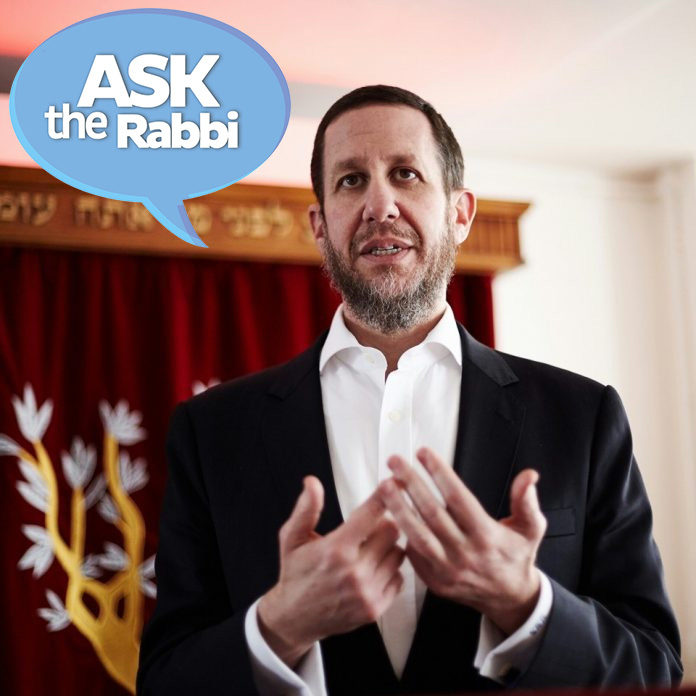
Is The Media Really Biased Against Jews?
Dear Rabbi
You have written here before about the recurrence of Anti-Semitism and while I am inclined to agree that there has been a resurgence, I fail to grasp why you think there is deliberate bias in the media. They typically do their job and report events as they see them. As an avid reader of the Times and the Guardian online, I genuinely fail to see any anti-Jewish prejudice. I would be grateful if you can share your thoughts on the matter.
Professor Richard Calbert
Dear Prof. Calbert
I recently read an interesting observation. When the actor Paul Newman died, the media wrote about what a great actor he was but they made no mention about his Jewish ancestry (yes apparently he was Jewish – or half way there). When Helen Suzman died (she was a South African woman ahead of her time – who was staunchly anti-apartheid and a personal advocate of Nelson Mandela) they said how great she was, but they failed to mention she was Jewish.
On the flip side when Ivan Boesky (he was convicted for significant financial fraud – insider trading. They made much of the movie “Wall Street” built around him); Andrew Fastow (never heard of him either, huh? He was CEO of Enron and was convicted for significant financial fraud of the company) or Bernie Madoff (I am sure you heard of him), almost every article that wrote about them mentioned they were Jewish.
Why do you think that is? While it is true that as a Jewish nation we hold ourselves to a higher moral calling, and when we fail we will be held to account, but why does the media choose to highlight it in specific when crimes are committed and yet ignore it when there is something positive to say as well? If that doesn’t reflect a certain bias, I don’t know what does.
It reflects what Albert Einstein said already back in the last century when he presented his paper on his Theory of Relativity at the Sorbonne, the prestigious French university: “If I am proved correct,” he said, “the Germans will call me a German, the Swiss will call me a Swiss Citizen, and the French will call me a great scientist. “If relativity is proved wrong, the French will call me a Swiss, the Swiss will call me a German, and the Germans will call me a Jew.”
Swiss will call me a Swiss Citizen, and the French will call me a great scientist. “If relativity is proved wrong, the French will call me a Swiss, the Swiss will call me a German, and the Germans will call me a Jew.”
Let me add this in for good measure: if you report random Islamic fundamentalist murder in Paris as terrorism and random Islamic fundamentalist murder in London as terrorism but you don’t report random Islamic fundamentalist murder in Tel Aviv as terrorism – then you’re an Anti-Semite! Makes you think, doesn’t it?
Is It Right To Move In?
Dear Rabbi
I want to move in with my girlfriend of 18 months. She says it would ruin our relationship. I say it would give us a better idea if we could be suitably compatible in marriage later on. What do you say?
Seymour
Dear Seymour
I say the rabbinic idiom “women have greater intuition,” rings real true here. First, the fact of the matter is that living together before marriage proves nothing. It doesn’t come with the same commitments, responsibilities and all other associated strings attached. You both act differently because you are still effectively in dating mode, and can walk out just as easily as you walked in. Second, those who seek to cohabit for a period of time prior to marriage are also doomed to psychological pitfall. The National Institute for Healthcare Research notes that couples that cohabit prior to marriage report significantly lower levels of marital happiness than other couples. And a recent research study at the University of Denver says that couples that cohabited before marriage have significantly higher divorce rates than those who did not. There are a number of profound reasons for this beyond the confines of this response.
Finally, if I’ve said it once, I’ve said it a thousand times: when relationships are cherished, carefully nurtured and perceived as sacred i.e. in the context of marriage – then there is nothing livelier. When they are pursued as more as a means of self-gratification, there can be nothing deadlier.
Is Cremation Really Wrong? The Torah Doesn’t Say So!
Dear Rabbi
Please explain what is wrong with cremation? A friend insists that it is not forbidden anywhere in the Torah.
Paul
Dear Paul
Your friend is right – sort of. While there may be not be an explicit prohibition in the Torah, it goes against the grain of a basic belief in Judaism – namely resurrection of the dead. By barbequing oneself (and I make no apologies for using such crude terminology for what is effectively an exceptionally crude act) one suggests an utter disbelief in one of Maimonides fundamental principles of faith. Moreover, a body is more than a carbon-based organic entity with some slick programming to generate responses to sensory input. It is the vehicle through which the soul was able to better express itself in fulfillment of commandments here on earth. Hence having been animated by such spirituality, the body itself becomes holy. When a Torah Scroll becomes invalid and unfit for use, it is reverently buried with full honors, because it is a holy item, even if currently it is unusable. What was, is, and always remains holy, and so indeed with the human body. No sane Jew with an ounce of conscience would ever consider burning a Torah scroll. Why then would one consider committing a sacrilegious act of desecration by burning a body, as if it has no meaning or importance to us? If anyone has such stipulated in their will it’s worthwhile reflecting on these words and make the necessary changes.









